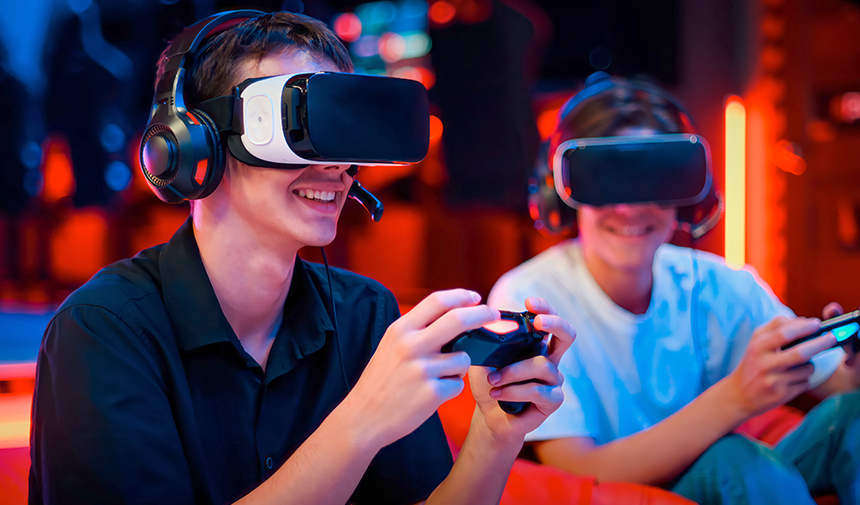Virtual reality (VR) technology is revolutionizing the world of entertainment. Enabling next-generation gaming experiences, this technology offers players a more realistic and immersive gaming environment than they have ever experienced before. Virtual reality has a wide range of applications not only in the gaming industry, but also in education, healthcare and business. In this article, we will explore the impact of virtual reality technology on gaming and other industries.
Virtual reality technology works with special headsets and motion tracking systems that allow users to fully immerse themselves in a virtual world. This technology is supported by visual and auditory stimuli as well as haptic feedback. Thus, users feel like they are in the game. VR technology has ushered in a new era in gaming, offering players more interactive and personalized experiences.
Traditional video games are often limited to two-dimensional screens and limited interaction possibilities. VR technology, however, makes the gaming experience three-dimensional and allows players to interact more deeply with the game world. For example, in an action game, players can fight against enemies using their real-life movements. This gives players a more realistic and exciting experience.
Virtual reality games also open up new possibilities for multiplayer gaming. Players can meet their friends in virtual environments and play games together. This increases social interaction and makes gamers’ gaming experiences richer. VR technology encourages creativity and innovation in the gaming world, while providing players with more personal and memorable moments.
In addition to the impact of VR technology in the gaming world, its potential in other sectors cannot be ignored. In education, VR technology can help students better understand subjects. For example, in history classes, students can explore historical events and places in three dimensions using virtual reality. This makes the learning process more immersive and fun.
In the healthcare sector, VR technology can be used in therapies and rehabilitation processes. For example, patients with phobias can overcome their fears with virtual reality therapies. Also, in physical rehabilitation processes, VR technology can make patients’ exercises more motivating. Virtual reality can improve the quality of healthcare services and positively affect patients’ treatment processes.
In the business world, VR technology can transform training and collaboration processes. Employees can learn their tasks in the workplace more effectively with virtual reality training programs. Furthermore, virtual meetings and collaboration platforms allow employees to work together regardless of their geographical location. This can increase work efficiency and make business processes more flexible.
Virtual reality technology has made a huge impact in the world of entertainment, delivering a new generation of gaming experiences. However, the potential of this technology is not limited to the gaming world. It can also lead to major changes in various sectors such as education, healthcare and business. Virtual reality will find wider use in the future and become an integral part of our daily lives. This innovative technology will continue to introduce us to experiences we have never had before.



